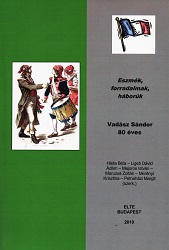
We kindly inform you that, as long as the subject affiliation of our 300.000+ articles is in progress, you might get unsufficient or no results on your third level or second level search. In this case, please broaden your search criteria.

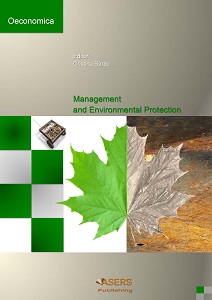
Every action we take, every used phone we throw away, every can of soda we put in the wrong place will affect the planet and, subsequently, the lives of future generations. When we have so much power to ruin the world, we should not be allowed to not know how we could also save it. The present book, although it cannot put together all the available information, tries to gather the minimum of it, so that it can make us understand how much harmwe, as human beings, have brought to our planet, why we should stop doing it and what we should do in order to make things better. The book is a collection of articles that have one thing in common: the protection of the environment, which they approach from different perspectives.
More...

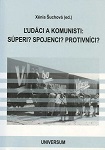
In the First Czechoslovak Republic, Slovakia remained its backward agrarian part because of its less developed economic structure. The Slovak agriculture suffered from unequal distribution of land, which caused the “hunger for land” among the poorest farmers – a majority of the Slovak population. The land reform, expected to solve this problem, was carried out according to laws issued by the Parliament, usually in agreement with the Agrarian Party’s policy. The study briefly outlines the development and results of the reform. It also shows the relations and political attitudes of Hlinka's Slovak People's Party and the Communist Party of Czechoslovakia to the land reform and its accomplishment in Slovakia. The focus is on the 1920s.
More...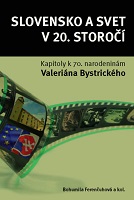
Pri vzniku slovenského agrárneho politického hnutia sa rozhodovalo nielen o konštituovaní agrárnej strany na Slovensku a jej ďalšom politickom osude, ale vzhľadom na jej význam na slovenskej i československej politickej scéne aj o smerovaní celého politického vývoja v medzivojnovom období a jeho neblahom vyústení v roku 1938.
More...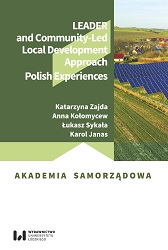
This publication presents an overview of the implementation of the LEADER approach and Community-Led Local Development in Poland. The authors discusses the theoretical background of the transformation of rural areas development policy, and presents the essence and the key characteristics of the LEADER approach, its origin, and different models of its implementation in European countries. They also concentrate on the participation principle, perceived as a one of the most important principles of territorial development and evaluate the previous activity of selected local action groups formed in Poland in the context of implementing the innovation principle. In this publication readers can also find discussion related to the implementation of Community-Led Local Development approach in Poland, based on the experiences of the LEADER approach. The authors hope that the publication will attract the interests of foreign readers (also non-academic readers) who are interested in the experiences of implementing the LEADER approach in Poland, and thus in the determinants of implementing Community-Led Local Development, not only in rural areas.
More...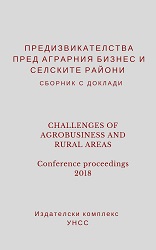
The current proceedings includes research results in the field of rural development and competitive agrobusiness development. It presents experienced and young scientists from Poland, Slovenia, Greece, Macedonia and Romania, working at the University of Ljubljana, the Institute of Agrarian and Food Economics in Warsaw and the Technological Educational Institution of Peloponnese Kalamata.
More...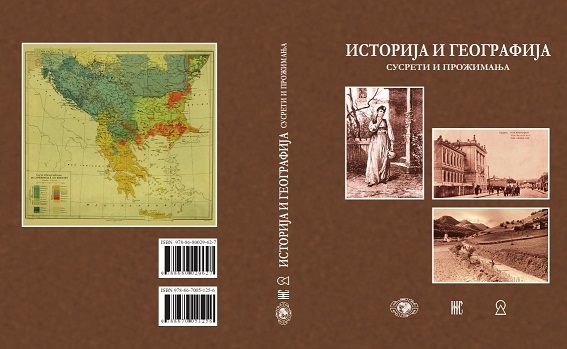
This article provides a historical and cultural analysis of the phenomenon of identity formation of the Russian people on the basis of study of agriculture as a historical-geographical factor which had a significant influence on the processes taking place in the Russian plain at the appointed chronological period.
More...
The Republic of Croatia is planning to build a canal to 2016 to connect the Danube (near Vukovar) and the Sava (near the village Sikirevci, near Slavonski Šamac). The canal will be 61.4 kilometers long. The idea of building a canal was 278 years old. The oldest documentation of the construction of the Danube–Sava originates from 1737. The multipurpose canal Danube–Sava should have three functions: to irrigate 35750 hectares of agricultural land, to carry out the surface drainage of around 173000 hectares and underground drainage of around 62 000 hectares, to serve for boating and tourism. The canal should shorten the path to Western Europe for 417 km (sailing time would be shorter for 48 hours), and a road to the east would be shortened by 85 km. It is assumed that the construction of the canal will contribute to the development of the river transport in the Republic of Croatia. There are many factors that are now threatening the Sava River as a natural resource: the work of industrial plants and oil industry, hydropower (in Slovenia), the discharge of wastewater, mining of river sediments, intensive farming and construction, the construction of the Sava–Danube canal and the restoration of the nautical road along the Sava. The World Conservation Union has launched a three-year project biodiversity Protection of the navigable area of the sava river basin. In December 2002, four countries signed an international framework agreement for the establishment of an international regime of navigation and sustainable water management of the river basin, and the measures to be taken against floods, ice hazards, droughts and pollution. The main challenge for the management of the Sava River is to enable economic development to sustainable use and protection of the natural resources in the basin. This project is expected to help to identify, define and manage the environmental and landscape diversity along the Sava River, in line with the EU directives on birds and habitats with the implementation and integration of the environmental values. It is assumed that the trenching of the canal will change the groundwater regime on the territory of Croatia. Possible change in the groundwater regime in Serbia could have disastrous consequences. On the territory of the Republic of Serbia, according to the Institute for Nature Conservation, there are nine natural areas, and four of them are along the river Sava: the Special Nature Reserves Zasavica, Obedska Bara, Morovićko-Bosutske forests and the landscape of outstanding features Veliko Ratno Ostrvo (Great War Island).
More...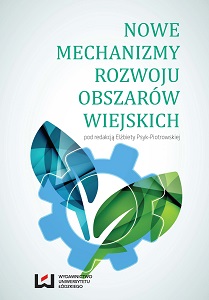
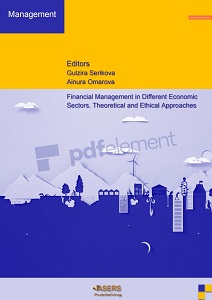
A financial manager at any time should: know exactly necessary and expected amounts in the accounts of the company during weeks, as well as within a month, quarter, year; to be sure that the company is the optimal formation of cost, reasonable pricing; know how the maximum financial result is achieved, aimed at company value growth. With the expansion of the enterprise financial management is much more complicated, but even more. The role of effective financial management is growing.This tutorial shows the scope of the application financial management to business leaders and financial experts were able to assess the completeness and degree of financial planning and management in its business subject, the management of financial flows and, financial system stability in unstable conditions of the Kazakhstan economy.
More...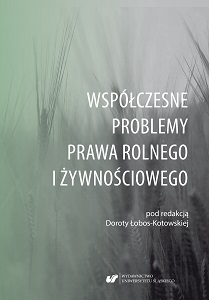
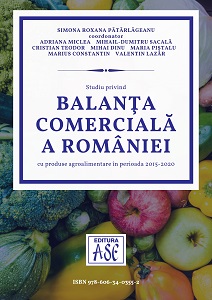
Research focused on the evolution of the volume and structure of Romania's trade balance with agri-food products. Results highlight the national economic importance of harnessing the production, processing and marketing of Romanian agri-food products.
More...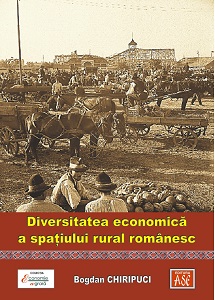
This paper is a manifest about the entrepreneurial potential of rural environment. Depending on the region of development and even the county in question, rural areas give certain insights about the extent of entrepreneurial manifestation depending on the particularity of each region. Therewith, the number of entrepreneurs, the average number of employees and the turnover registered at each of the above mentioned categories of settlements are the most important variables which helped to achieve a transparent perspective of the current entrepreneurial situation in romanian rural areas.
More...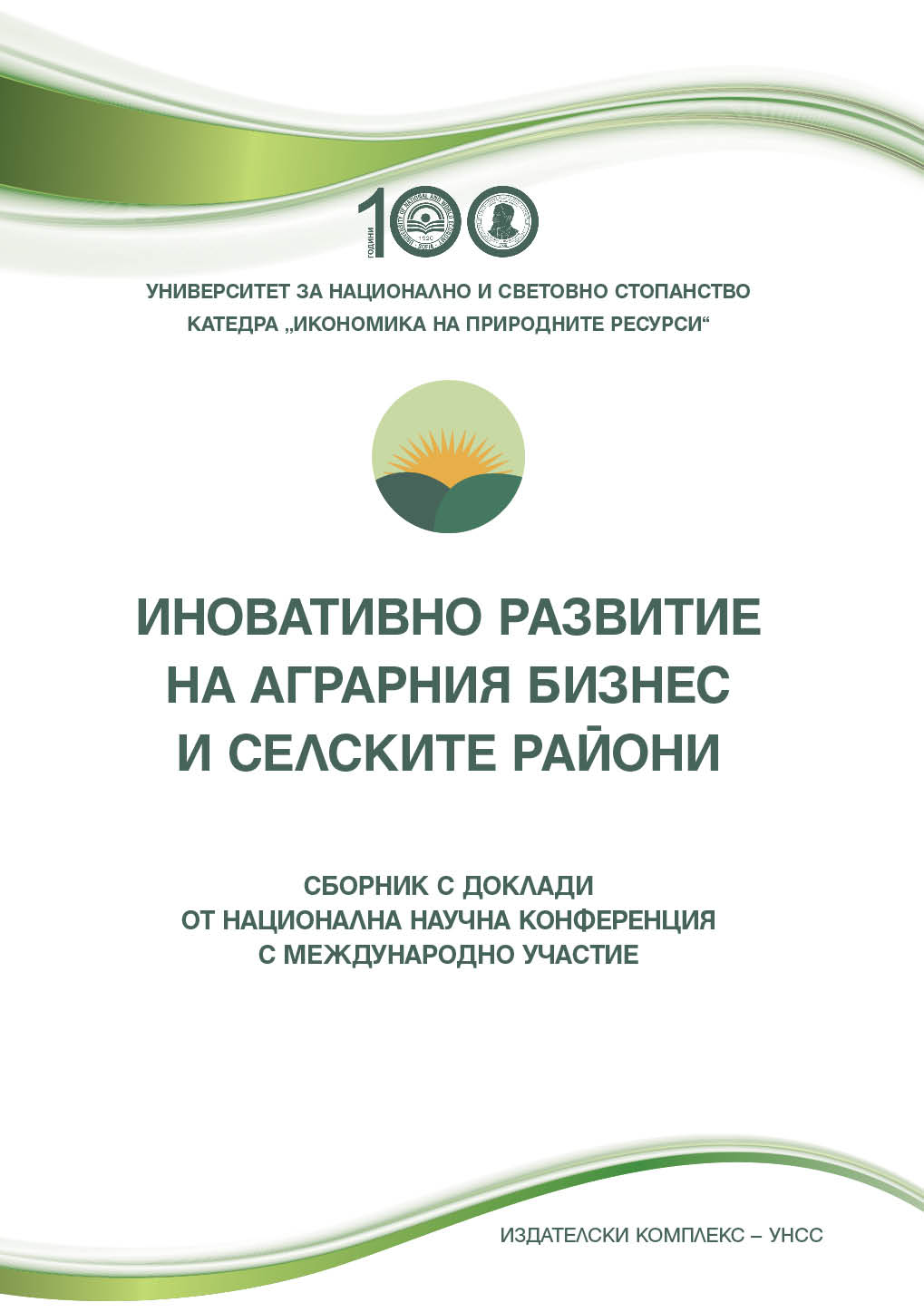
The collection includes reports from an international scientific conference „Innovative development of agricultural business and rural areas“, organized by the Department of Natural Resources Economics at the University of National and World Economy in April 2021. The papers are grouped into three sections. In the first section the emphasis was placed on innovative approaches to the development of agribusiness and rural areas, organic farming, risk management, land market and others. In the second section "Innovative business models for development of Agrarian Business and Rural Areas" are the reports on economics and COVID-19, the need for changes in Bulgarian agricultural production, the development of plant production and organic livestock in Greece, strategies and innovations to promote the flexibility of the agricultural production system in Northeastern Bulgaria. A special place is given to state aid in Bulgarian agriculture and innovative procedures of national schemes for Albanian farmers. The third section "Bioeconomy, Green Architecture and Business" includes reports on eco-entrepreneurship, sectoral agri-food value chains - analysis, sustainability and prospects, models and approaches for assessing bioeconomic development, implementation of eco-innovation by farms to provide agro-ecosystem services, etc.
More...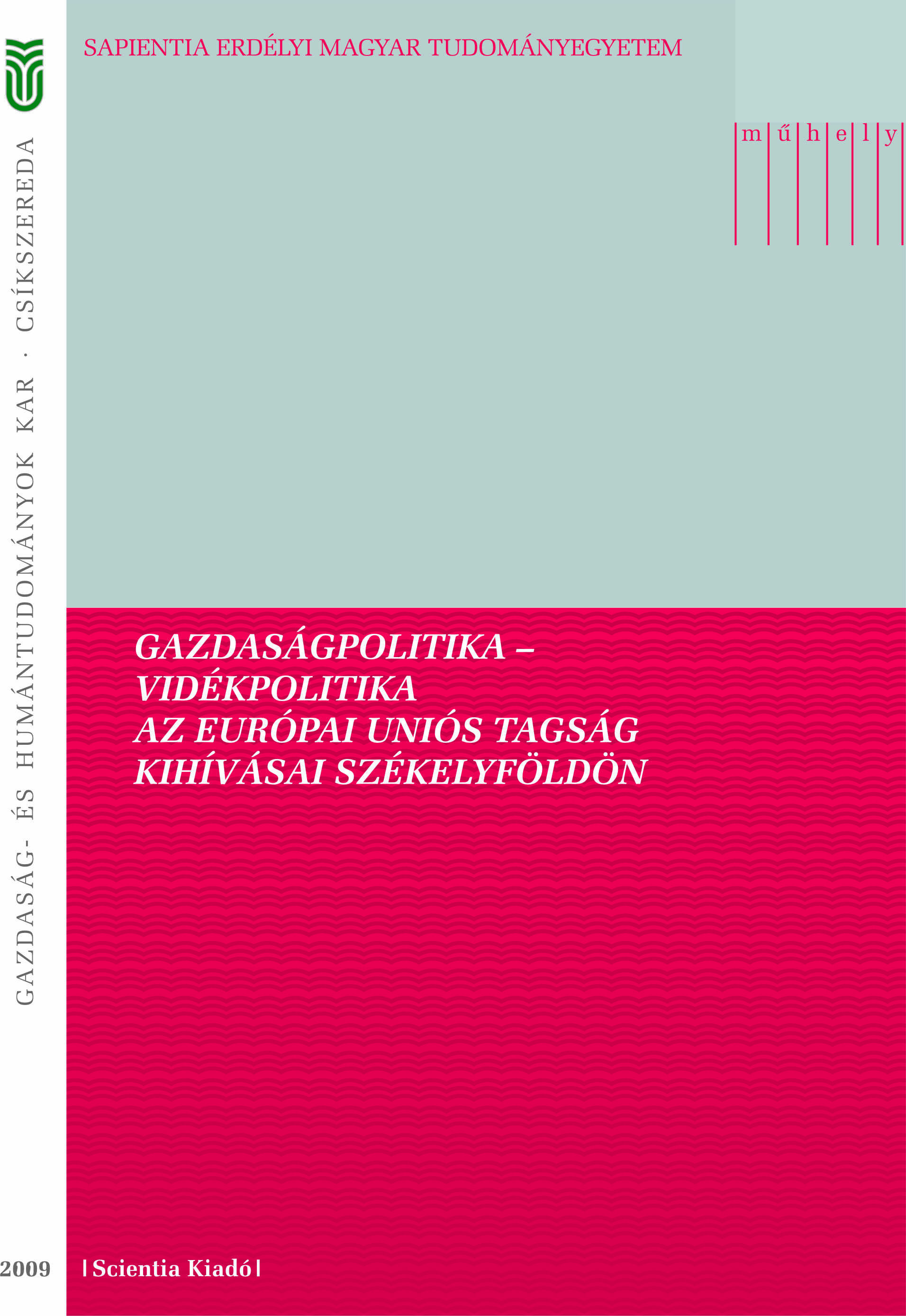
The volume comprises the lectures delivered at the conference entitled "Provocări de politici economice în Uniunea Europeană. Reflexiuni asupra Ţinutului Secuiesc" [Challenges of Economic Policies in the European Union. Reflections upon the Szeklerland]. The debates presented are focused on the economic crisis and the problems specific to the region at issue. The papers address two main topics: political economy in the context of Romania's accession to the EU and the issues of agrarian policy concerning the area.
More...
The main goal of the monograph is to present the issues related to the economic and social development of the South Caucasus against the background of events that took place primarily in the Russian state, as well as the issues of shaping economic relations between Russia and the area of Transcaucasia.
More...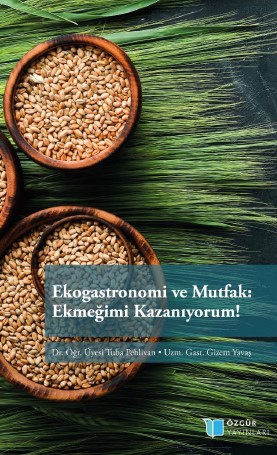
Basic needs for food supply, which stands at a very important point between sustainable gastronomy to prevent possible problems activities play an important role. Sustainable gastronomy, in other words, eco gastronomy, can provide help for current and potential problems due to the philosophy it supports to carry gastronomic activities by protecting human health, transferring food cultures to future generations, maintaining environment and being compatible with nature. Scientific research reveals that 3 children die of hunger every minute in the world and one of every 3 plates we eat is thrown away. It is also stated that the most wasted food item from the plate is bread. At this point, it is extremely important to be aware of the fact that goods and services are means of meeting needs, and to have individuals who can use resources correctly and choose the goods and services that are suitable for themselves or their needs. In this study, sustainable gastronomy trends in Turkey and in the world are included, the issue of waste and bread waste is examined with a broad perspective and presented to the reader in an understandable language. In addition, practical information is given to prevent breads from getting stale in homes and businesses, and sample recipes are presented as a solution for stale breads. While applying the recipes, different types of breads were used to provide a unity in terms of taste, texture and visual presentation, and recipes were created that tasters could not easily understand that there was bread in it. In all of the recipes in the book, care has been taken to ensure that recipes with bread can be made without requiring any effort other than making the same recipe without using bread. The information and descriptions in this research; It has a high importance in terms of appealing to business owners, sector employees, teachers/students in institutions providing education on food and beverage, everyone who enjoys spending time in the kitchen and raising awareness about sustainable food.
More...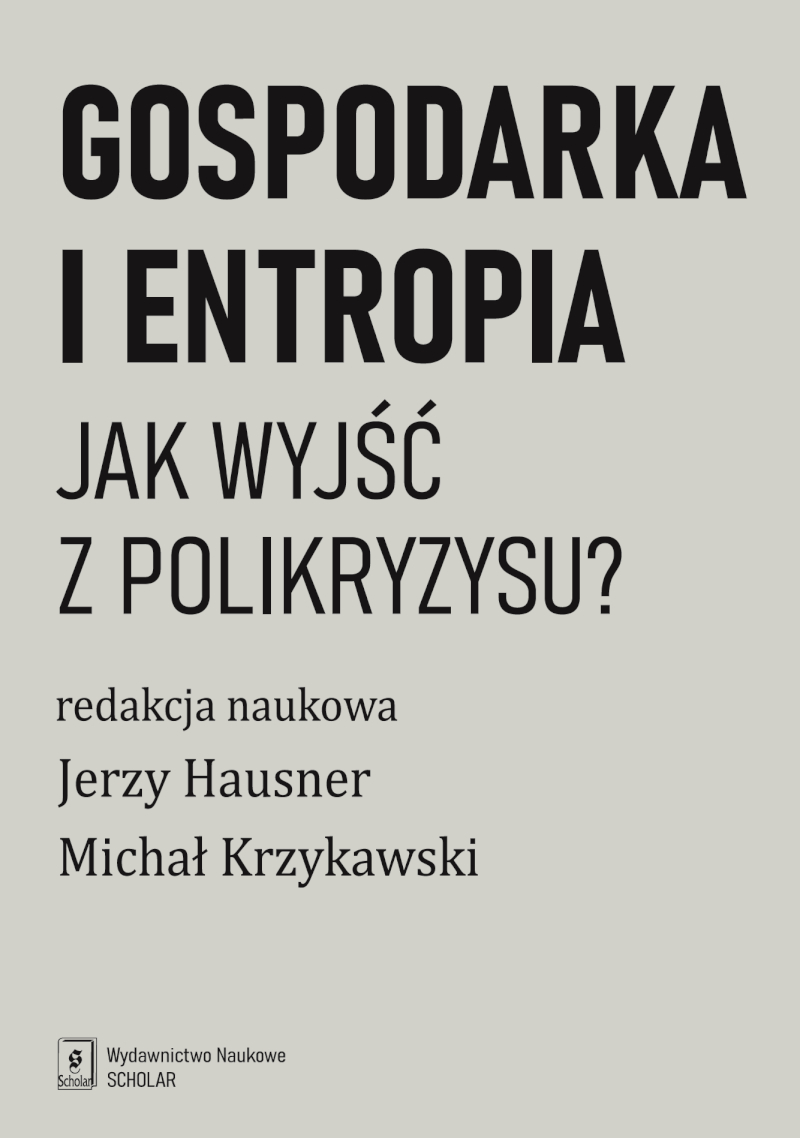
Ta publikacja może pełnić funkcję ważnego podręcznika czy przewodnika pokazującego sposoby rozwijania nowych wyobrażeń o ekonomii. Autorzy proponują całościowy, alternatywny język mówienia o gospodarce i kryzysach, co jest konieczne do tego, aby odejść od zgubnej oczywistości oddzielnego zajmowania się ekonomią, społeczeństwem i technologią. Książka jest świadectwem prawdziwej interdyscyplinarności, pokazującej, że nie można redukować ekonomii do zaspokajania potrzeb w porządku czysto materialnym, ponieważ wszystkie pojęcia ekonomiczne angażują i mobilizują cały system. Zaprezentowane w książce stanowiska będą wzbudzać dyskusje. Cieszę się, że mogłam być jedną z pierwszych czytelniczek pierwszej takiej pracy napisanej w języku polskim. z recenzji prof. Małgorzaty Jacyno (Uniwersytet Warszawski) To jedna z ciekawszych i ambitniejszych prób holistycznego spojrzenia na procesy gospodarcze, z uwzględnieniem działania praw termodynamiki, samoorganizacji systemów żywych i zmian klimatu wskutek działalności człowieka. Stanowi interesującą próbę połączenia pozornie odległych dziedzin i dyscyplin naukowych, jakimi są fizyka (w tym energetyka), nauki społeczne (w tym ekonomia i nauki o polityce) i nauki przyrodnicze. Hausner i Krzykawski, jako redaktorzy i współautorzy tej publikacji, pokazują nowe kierunki badań w ekonomii oraz zdecydowaną przewagę badań interdyscyplinarnych nad wąskospecjalistycznymi.Odbiorcami tej książki powinni być wszyscy ci, którym bliska jest problematyka transformacji energetycznej, a także budowa regeneracyjnych systemów gospodarczych, społecznych i przyrodniczych, w tym złożonych systemów terytorialnych. z recenzji prof. Tadeusza Markowskiego (Uniwersytet Łódzki) Autorki i autorzy: Edwin Bendyk, Alicja Boryń, Ivar Ekeland, Zenon Foltynowicz, Maciej Grodzicki, Jerzy Hausner, Aleksander Jakimowicz, Andrzej Kassenberg, Michał Krzykawski, Joanna Kulczycka, Mikołaj Lewicki, Michał Możdżeń, Jan Oleszczuk-Zygmuntowski, Wojciech Paprocki, Jan Popczyk, Bożena Ryszawska, Wojciech Stanek, Magdalena Wojnarowska,
More...